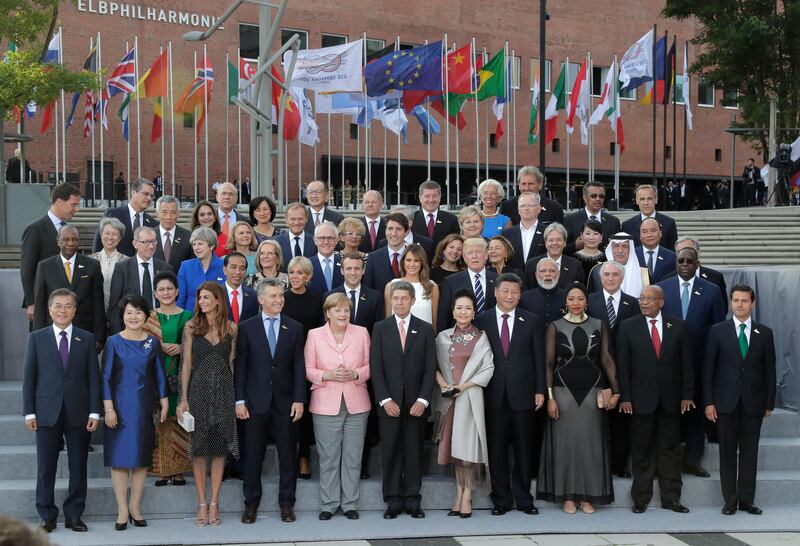HAMBURG // President Donald Trump was left on the fringes at the Group of 20 summit — in the leaders' group photo, that is.
But Mr Trump's position on the margins was merely a matter of protocol based on seniority. Pride of place goes to the so-called G-20 troika, consisting of current host German Chancellor Angela Merkel flanked by the hosts of the next meeting, Argentine leader Mauricio Macri, and the previous one, Chinese president Xi Jinping.
Mr Trump ended up off to one side, between the president of Indonesia, Joko Widodo, and French president Emmanuel Macron, who is even newer to the job, having been elected in May, whereas Mr Trump took office in January.
This time, there was no pushing and shoving. In May, Trump elbowed Montenegro's prime minister Dusko Markovic out of the way and thrust himself forward as Nato leaders entered the alliance's new headquarters and prepared for a group photo. This was Montenegro's debut at Nato as its newest member but Mr Markovic later said he bore no hard feelings about the incident. It was a different matter back home in the Balkans, where footage of the altercation sparked indignation and went viral on social media.
But in Hamburg, Mr Trump seemed to take the careful positioning demanded for the group photo on the chin. At least he made it to the front row, which was his prerogative as a head of state. Mere prime ministers — heads of government — are in the second row. And guests such as the heads of international organisations are banished to the back row of the photo, no matter how much summit experience or international clout they may have.
This explains why this time the back row was occupied by the head of the International Monetary Fund, Christine Lagarde, the head of the Financial Stability Board, Mark Carney, and Angel Gurria, the head of the Organisation for Economic Cooperation and Development.
Last year, British prime minister Theresa May was similarly relegated to the outer ranks at the G-20 summit in China because she was a newcomer — and not, as some thought, because of Britain's decision to leave the European Union.






